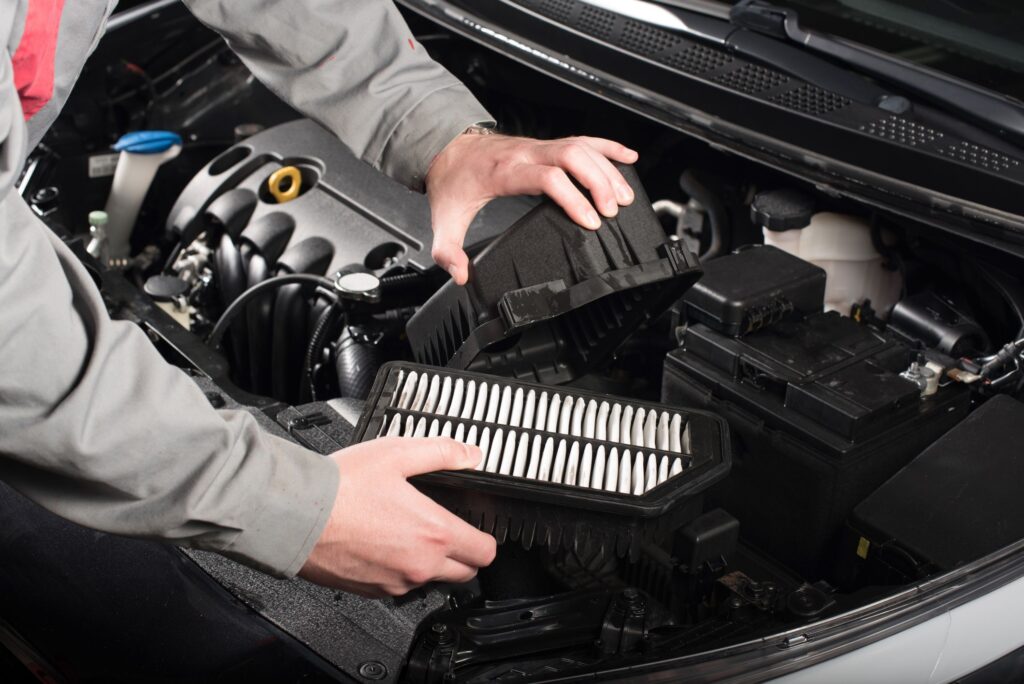Optimal indoor air quality and effective system operation of your home’s HVAC (Heating, Ventilation, and Air Conditioning) system depend on clean air filters. Dust, pollen, pet dander, and other airborne particles are caught by air filters and don’t get throughout your house. But these filters eventually get less efficient and blocked, so they need to be replaced.
Advantages of Doing Air Filter Replacement Yourself
Replacement of an air filter by yourself (DIY) has a number of benefits. It is less expensive than calling in a qualified service technician, to start. Choosing premium filters and finishing the change at your convenience are further benefits of doing this yourself. Above all, routinely changing your air filter helps to enhance the quality of the air within your home, which is good for your family’s health.
Needed Materials and Tools
Get the supplies and tools you will need before starting the replacement. To get at the filter compartment and the replacement air filter itself, you will usually need a screwdriver or wrench. Make sure you get the right air filter for your HVAC system as they come in a variety of sizes and types.
Quick Guide to Air Filter Replacement
To stop your HVAC system from distributing dust and debris throughout your house, turn it off before removing the old filter.
Where is the air filter? See the user guide for your HVAC system to find the air filter container. Usually found close to the boiler or air handler.
Remove the previous filter: Slid the old air filter carefully out of its slot. To be sure you install the new filter correctly, note its orientation.
Fit the replacement filter: Making sure the new air filter fits tightly, place it into the compartment. Check that the arrows showing the airflow direction match the direction on the filter.
Snap the access panel shut. After the new filter is firmly in place, shut the filter compartment door or access panel. Verify that it is tightly sealed to stop air leakage.
Errors Often Made
Averting typical mistakes that could impair system operation is crucial while changing air filters. Among them are putting in the filter backwards, utilising the incorrect size, and ignoring other crucial HVAC maintenance chores like coil inspection and duct cleaning.
Air Filter Lifespan Extension Tips
The following advice will help you to preserve the best possible indoor air quality and extend the life of your air filters:
Monthly vacuuming or dusting of the filter will keep airflow and remove surface particles.
Scheduled replacements: Usually every one to three months, follow the manufacturer’s recommendations for filter replacement interval.
Tracking the state of the air When airflow decreases or allergy problems worsen, it’s time to replace the filter.
Symptoms Your Air Filter Needs to Be Replaced
Knowing when your air filter needs to be changed is crucial. Among these are less airflow from vents, higher energy costs from inefficient systems, and allergy symptoms including coughing and sneezing.
Air filter replacement’s environmental impact
The least amount of environmental effect is achieved by properly disposing of outdated air filter. Choose environmentally friendly filter alternatives composed of recyclable materials wherever at all feasible. Furthermore think about giving old filters to charities that utilise them again.
Conclusion
Maintaining interior air quality and extending the life of your HVAC system may be accomplished with ease by routinely changing your air filters. Through the use of preventative maintenance techniques and this do-it-yourself manual, you can guarantee your family and you a healthier and more comfortable living space.
Specialised FAQs
My air filter needs to be changed how often?
Type of filter, number of people in the home, and indoor air quality all affect how often air filters need to be changed. Replacement of filters is generally recommended every one to three months, though.
Can I clean or reuse my air filter?
Though some disposable filters can be cleaned and reused, most should be changed rather than cleaned. Disposable filter integrity can be compromised and their efficacy decreased by washing.
My HVAC system requires what size air filter?
See the user handbook for your HVAC system or measure the current filter to get the right size. Among common sizes are 16×20, 20×25, and 16×25 inches.
Exist any advantages for health from routinely changing air filters?
Indeed, routinely changing air filters helps to eliminate dust, allergens, and other contaminants from indoor air, which improves respiratory health and relieves allergy symptoms.
What indications exist that my air filter is installed correctly?
Make sure the direction indicated on the filter compartment and the arrows showing airflow direction line up. Verify also that the access panel is tightly closed and that the filter fits snuggly.

